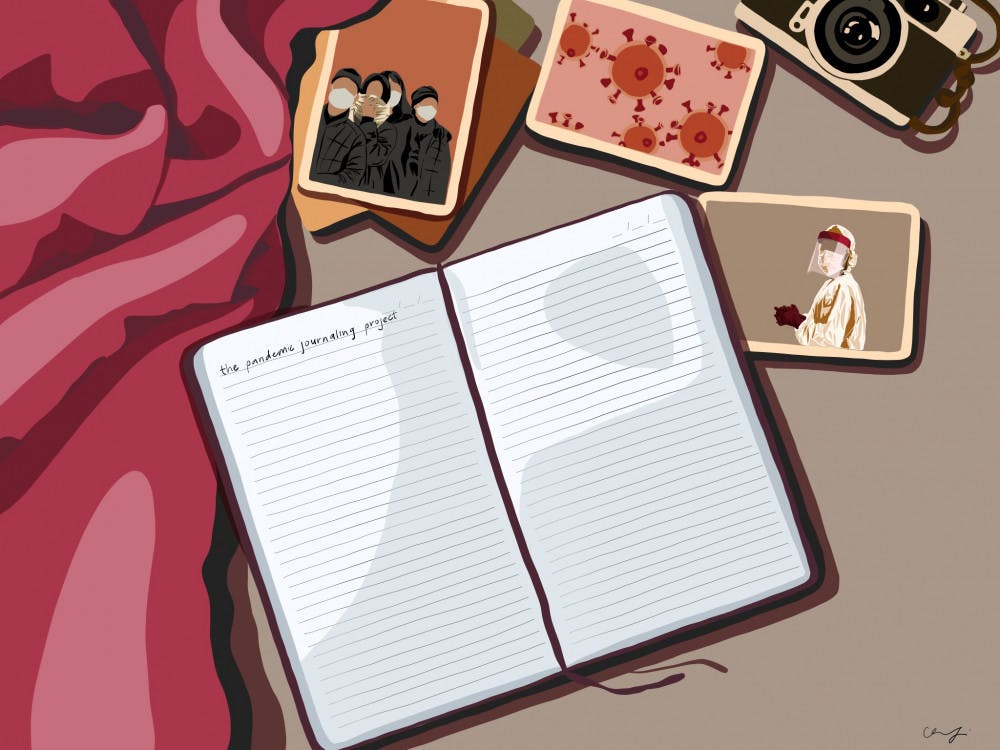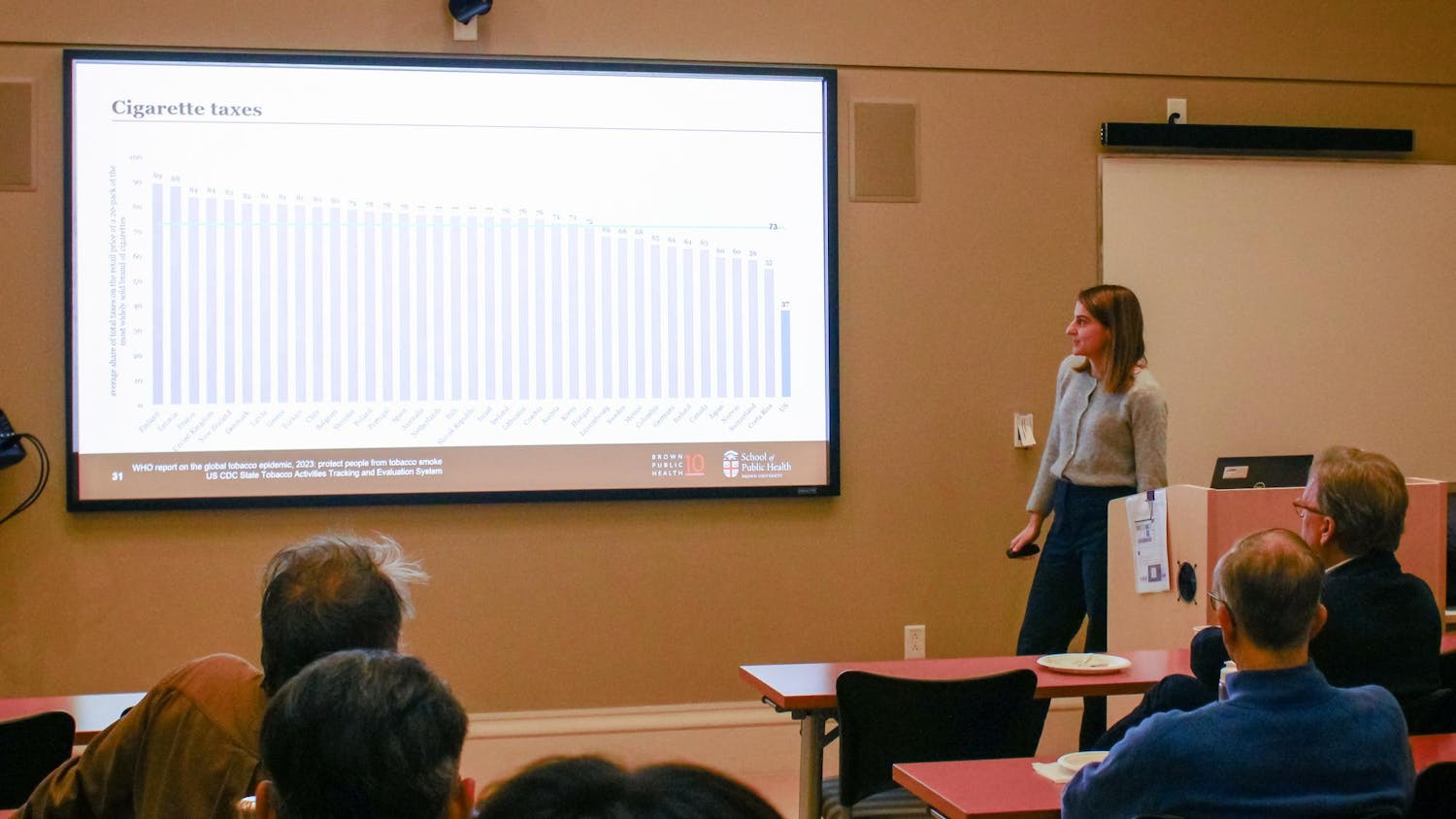In an effort to record the voices of ordinary people during the COVID-19 pandemic, Assistant Professor of Anthropology Katherine Mason and Sarah Willen, associate professor of anthropology at University of Connecticut, co-founded the Pandemic Journaling Project to predesign an archive of people’s unique experiences.
Willen, a “long-time journaler”, and Mason, author of “Infectious Change: Reinventing Chinese Public Health After an Epidemic,” both felt the pandemic was a “time that was so chaotic for so many people,” so they “didn't want to impose” on people by interviewing or asking them to participate in a research project “just for us,” Mason said. Thus, the Pandemic Journaling Project began.
The project features an online platform through which people can record weekly journals through writing, audio or visuals. “They can write their journal entry, they can record their voice and make an audio journal, or they can take a photograph and either write or record something brief about that photograph,” Mason said.
Participants can choose whether to make journal entries available for public sharing or to keep them private from public viewing for the time being. All participants have consented “that 25 years after the pandemic is over, all of that material will be released (with) no names, no contact information, nothing that could easily identify the person,” Mason said. “Everything will be made part of the public record and will be kept as a digital archive.”
This “perspective is really valuable in figuring out how to approach the next pandemic,” Mason said. “If we want to do better in the future, we need to know” the reasoning behind people’s decision-making during COVID-19.
Accessibility has been a priority of the Pandemic Journaling Project because history has been “written by the powerful,” Mason said. “We wanted to really give an opportunity for ordinary people from all walks of life, and we worked really hard to make sure we have a diverse group of people participating in terms of racial and ethnic diversity,” age, socioeconomic status and education, she added.
Participants can record journals on a computer or a smartphone, and entries can also be submitted in Spanish.
Historically, “a lot of Spanish-speaking communities are left out of the narrative,” said Ana Perez ’24, a research assistant for the Pandemic Journaling Project. She has worked on translating the website, emails and social media posts from English to Spanish.
People can participate “from any country in the world,” Mason said, and current participants come from more than 40 nations.
The Pandemic Journaling Project is a mixed methods project which collects “basic survey information about our participants,” Mason said. Information on demographic, health, political leaning and COVID-19 exposure are collected along with journal entries.
This duality allows researchers to not only see the statistics, but also to “understand what's going on in people's lives from a more intimate perspective,” said Alice Larotonda, a consulting researcher for the Pandemic Journaling Project, a Brown visiting scholar in anthropology and a research fellow at the University of Bologna in Italy. This will allow them to “have a better grasp of the impact,” she added.
The platform is anonymous and has never collected or posted identifying information, differentiating the record from social media. “When people submit anonymously … they're not trying to be performative in the way you would be on social media. It's a lot more authentic and raw,” Mason said.
The Pandemic Journaling Project thereby aims to honestly capture people’s experiences with the pandemic. “People are not usually talking about major events (in the journal entries). They're very often just talking about what happens in their every day,” Mason said.
The team also strives to offer participants something that may actually be useful for them, too.
Emily Nguyen ‘21, a research assistant for the Pandemic Journaling Project, emphasized the importance of reciprocity in outreach. “We wanted to ensure that whoever we’re reaching out to for help” is receiving reciprocated benefit and getting something in return.
“Journaling has been shown to be helpful for mental health. It helps to relieve stress. It can help with mild depression,” Mason said.
Though the Project doesn’t promise that journaling will do any of these things, participants have expressed that “they really appreciate having this medium in which to record their experiences on a mental health level,” Mason said. They feel that “they're part of history, and they're going to leave something behind,” she added.
“The pandemic has been a very isolating time for a lot of people,” Perez said. “Just reflecting on what's going on, taking that time and space to let it settle” is worthwhile.
Participants have enjoyed having this weekly journaling appointment because they “feel like there (is) a continuity … in a moment where there was so much uncertainty,” Larotonda said.
Through the featured entries page on the project’s website and Instagram page, people can read “that others are going exactly through the same things as they are,” Larotonda said.
“People hearing each other, even if it's anonymous, even if it's just by reading someone else's story, that sense of community that's created, is probably one of the big successes” of the project, Perez added.
All the members of the team who spoke with The Herald expressed their gratitude to the people who have started to journal with them. Currently, the team has collected 11,000 entries from about 1,500 participants, according to Mason.
Larotonda said that the research team hopes that the project “helps people today and in the future understand how intertwined our lives are and how much we need each other … because we really are stronger together.”
Correction: An earlier version of this article referred to Sarah Willen as a "journalist," when, in fact, she is a "journaler." Also, an earlier photo caption stated that entries entering the public record will be stripped of identifying information. Actually, entries that enter the Featured Entries page will be stripped of the information. The Herald regrets the errors.

ADVERTISEMENT




